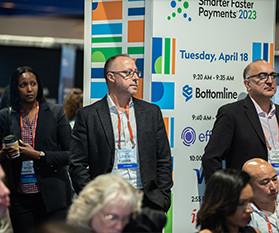10 Lessons We Learned at the Nacha Smarter Faster Payment Conference
South State Correspondent
MAY 13, 2024
The major themes of fraud, artificial intelligence (AI), expansion of instant payments, open banking, and regulation were particularly relevant to your roles as executives, risk managers, compliance officers, and technology leaders. Unfortunately, most banks don’t gather fraud data across payment channels or track “pre-crime events.”

















Let's personalize your content